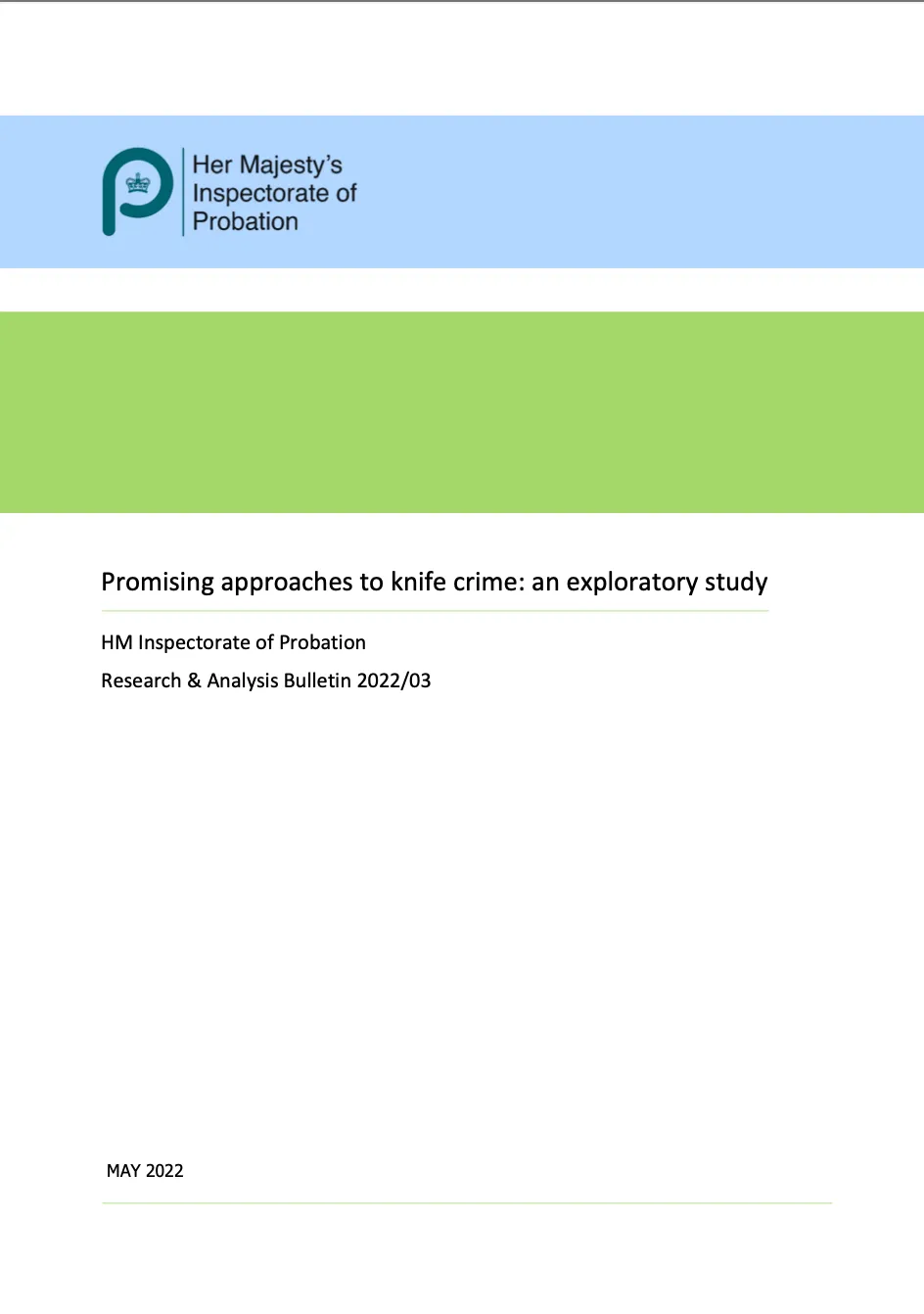Context
‘Knife crime’, which here we use as shorthand for children and young people using and carrying bladed weapons in public places, has been increasing in recent years. Current evidence suggests that knife crime is driven by a combination of poverty, marginalisation, adverse childhood experiences (ACEs), trauma, fear and victimisation, including exploitation. Youth offending teams (YOTs), amongst their other duties, are responsible for working with children (aged 10-17 years) who are at risk of involvement with knife crime, or who have been found guilty of a knife crime. YOTs are interdisciplinary teams which provide multi-agency input based on local need. They provide supervision and intervention programmes which focus on desistance from crime, and support children to avoid offending and reoffending, and to live a healthy and positive life. Although YOTs are increasingly sharing or co-commissioning services across local government boundaries, greater understanding of effective YOT activity is needed to allow for improved practice sharing, and potentially to deliver financial savings.
Approach
The research adopted a cross-sectional qualitative design in which we interviewed 77 people from five YOTs. The interviews focused on what participants believed to be promising practice in responding to knife crime. The interviewees included caseworkers, managers and leaders, external stakeholders (such as partners who worked with the YOT), and children. The five YOTs were chosen because they were situated in areas where statistics showed a high prevalence of knife crime and there was some pre-existing evidence that the YOT had adopted promising approaches. The YOTs, which were spread across England, all served densely populated urban areas with relatively high levels of inequality and deprivation and an ethnically diverse population
Key findings
- The nature of knife crime is changing, with participants suggesting it is both more prevalent and more serious than in previous years. This change has, in part, been driven by austerity and cuts to preventive services.
- Participants were keen to stress the importance of a ‘child first, offender second’ approach to working with children, reflecting the review of the youth justice system undertaken by Taylor (2016). This involves taking a relational approach, individualising responses, and recognising and responding to trauma.
- We identified four groups of promising approaches. These are: diversionary activities; strengths-based approaches; knife crime programmes; and other ancillary interventions (e.g. health awareness, aftermath, and family interventions). The evidence on the effectiveness of all of these approaches is limited.
- Participants were keen to stress that a lack of resources and unhelpful commissioning arrangements were significant barriers to working with children when addressing knife crime.
- Participants felt that a public health approach holds significant potential for responding to knife crime. This approach combines prevention, secondary intervention and tertiary intervention to target all people in a community.
Implications and recommendations
- Some elements of the knife crime programmes were seen to be effective but they should be considered as part of a framework which includes more individualised and trauma-informed work. Programmes alone should not be seen as a panacea to the problem of knife crime.
- Diversionary activities were viewed positively by participants in terms of keeping children busy. The focus within these activities on opportunities which provide children with the chance to develop their skills and self-esteem is underpinned by theory, if not necessarily evidence. A key recommendation then is to undertake evaluations of some of these interventions to ascertain their impact. These evaluations should incorporate intermediate measures rather than focus solely on longer-term proven offending.
- There is some evidence that programmes are incorporating an element of the ‘scared straight’ model, which is known to be counter-productive (College of Policing, 2015) – this needs exploring in greater depth and these aspects should be removed.
- We did not manage to capture the voices of many children. This was partly down to the pandemic but also because of YOT workload pressures and difficulties in recruiting young participants. A concerted effort should be made to do this in future evaluations, as children are the key to understanding whether and how differing approaches work, paying attention to the differing experiences of girls and those from ethnic minorities, and considering other protected characteristics.
- Budget cuts have had a considerable impact on the ability of YOTs to undertake all their work. Along with increased funding, we recommend commissioners to look at more sustainable funding arrangements, overcoming the problem of voluntary sector providers changing frequently.
- YOT participants were keen to work within a public health model, yet there are many challenges. One such challenge is the YOTs’ remit, which is both a funding issue and a strategic one. In two of the research sites, the YOT was heavily involved, at a strategic level, in the development of the public health model and this seemed to work well. We would suggest that YOTs should have a significant role in preventive interventions because of their knowledge and experience in this area.
- Exploitation as a cause of knife crime emerged frequently in our discussions. Therefore, working with and supporting children who are at risk of exploitation should be a priority.
- Mentoring is potentially beneficial and we would recommend that YOTs make a concerted effort to bolster this element of their provision. However, mentoring was seen as a way of filling a gap in shared cultural experiences and expectations which is created by a workforce which is not representative of the demographic of people on the caseload. We would therefore suggest that recruitment focuses on employing more people who have experience of the (youth) justice system as a more sustainable and ethical way forward.
- Schools should be trauma-informed – exclusions and suspensions should be minimised, and alternatives to exclusion and suspension should be explored.
- The key to addressing knife crime is early intervention and prevention. Once a child becomes involved with the criminal justice system, it can become more difficult to support them towards pro-social life choices. Many participants said that preventive work needs to start in nurseries, early years, and family settings.
